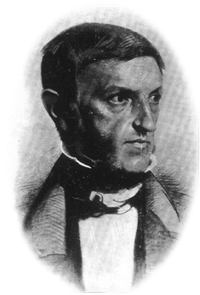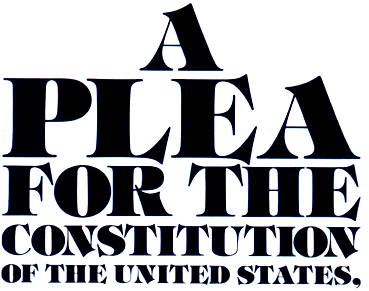Table of Contents Part II PAPER MONEY IN AMERICA FROM THE BEGINNING OF THE SEVEN YEARS' WAR TO THE CONSTITUTIONAL CONVENTION OF THE UNITED STATES. FROM 1755-6 TO MAY, 1787. Part III THE FEDERAL CONVENTION SHUTS AND BARS THE DOORS AGAINST PAPER MONEY. FROM 14TH MAY TO 17TH SEPTEMBER, 1787. Part IV THE CONSTITUTION IN THE HOUSE OF ITS GUARDIANS. Part V WHAT IS TO BE DONE? Appendix
In the autumn of 1690 an expedition, sent by Massachusetts to capture Quebec, returned without success. To defray its cost, which amounted to forty thousand pounds, and to satisfy complaints of "the want of an adequate measure of commerce," the general court, in December, 1690, ordered the issue of "seven thousand pounds of printed bills of equal value with money;" and of the remainder in May, 1691 In July, 1692, within nineteen months of the earliest emission, the first legislature under the new charter which transformed the self-governing colony of Massachusetts Bay into a direct dependency of Great Britain, made "all" these "bills of public credit current within this province in all payments equivalent to money, excepting specialties and contracts made before the publication" of this new law. Their credit was supported by receiving them in all public payments at a premium of five percent. Immediately all the coin then in Massachusetts was exported to England, and the new stock followed as fast as it came in from abroad. The vain sorrow of the province expressed itself in December, 1697, by the prohibition of "the export of coin, silver money or bullion." In June, 1700, a joint committee of the council and representatives, to be aided by the advice of merchants and others, was appointed to consider how to revive trade, and find out some suitable medium to supply the scarcity of "money;" and it is to be noted, that the word "money" in all colonial legislation was used exclusively for gold and silver coin. The bills of credit of the defunct government remained a legal tender in all payments except of special contracts. The first issue of bills of credit of Massachusetts after it became a royal province, was in November, 1702, for ten thousand pounds, in value "equal to money," but to be accepted in all public payments at the advance of five percent. A tax was ordered for their redemption, and it remained the custom at every emission of bills of credit to grant a seemingly sufficient fund for their payment. In May, 1703, South Carolina, the first colony which trod in the footsteps of Massachusetts, gave a new development to American paper bills, by enacting not only that its new emission of six thousand pounds should be "a good payment and tender in law," but that whoever should refuse them should "forfeit double the value of bills so refused." For a short time from June, 1716, the fine was "treble the value." In 1709, Great Britain made a sudden requisition on the American colonies to aid in the conquest of the French possessions in North America. To meet this invitation, all the New England colonies emitted paper bills, and the paper of each one of them found some circulation in the others. The original act, by which New Hampshire in 1709 emitted its first paper money, was destroyed by fire; a supplemental act of the following year seems to show that they were left to find their own way into circulation. Connecticut, making its first emission of bills in June, 1709, put forth eight thousand pounds, soon followed by eleven thousand more, which were "to be in value equal to money, and to be accordingly accepted in all public payments." The terms of the issue of Massachusetts, which was delayed till 1710, corresponded with those of Connecticut; but in 1712 the statute book complains that "money," which in those days meant only coin, "was not to be had;" and it was enacted that for any debt contracted within ten years after the last day of October, 1705, no debtor, after tendering payment of his full debt in lawful bills of credit on the province, should be disturbed in person or estate. The law of Massachusetts, punishing counterfeiters of its own bills, was courteously extended to the bills of the other New England colonies; but the emissions of one colony were never made a tender in any other. The inter colonial circulation of each other's bills wrought a new uncertainty in prices, for which the currency of each one of the four was steadily declining, it declined in each with unequal speed. Rhode Island, in July, 1710, on its first emission of bills of credit, declared them equal in value to "money," and made them receivable in all public payments. In October, 1715, they were made lawful pay even for specialties; but as this enactment threatened "great strife and contention among the inhabitants" of the colony, it was repealed in the following June. New York entered eagerly into the defence of its northern frontier, and in November, 1709, for the first time involved itself in the use of bills of credit. The Friends in the assembly of New Jersey at first defeated the bill for taking part in the war; but after a short prorogation it was adopted. In Pennsylvania, where the Friends had more power, the spread of paper money was for a while arrested. In November, 1711, Rhode Island discharged a claim by a loan of its bills of credit to the amount of three hundred pounds for four years, free of interest. South Carolina gave a wider development to this new form of using paper. Its legislature, on the pretext of creating a fund to sink former bills of credit and to encourage trade and commerce, in July, 1712, ordered fifty-two thousand pounds in new bills of credit to be stamped and put out at interest in loans. The passion for borrowing spread like flame on the dry prairie. In November, 1714, Massachusetts ordered fifty thousand pounds to be let out by trustees to the inhabitants of the province for five years on real security at five pounds percent per annum, to be paid back in five annual installments. The act was a sacrifice of the public interests to borrowers, who were to return their loan only after a lapse of time sufficient to insure the very great depreciation of the paper in which it was to be paid. Moreover, the borrowers needed an enforcement by law of the circulation of the paper which they borrowed: swiftly, therefore, in December, 1715, under a pretext "to prevent the oppression of debtors," a stringent statute made the bills legal tender for all debts that had been or should be contracted between the thirtieth of October, 1705, and the thirtieth of October, 1722. The loan of bills of credit by Massachusetts in 1714 was managed at the seat of government. But why should Boston be favored? "That the husbandry, fishery, and other trade of the province might be encouraged and promoted," "bills of credit on the province to the amount of one hundred thousand pounds" were in 1716 ordered to be distributed through a loan office in each county. But why should borrowers in the smaller townships be forced to travel to their shire town? Let a public money-lender be near every man's door. By the statute of March, 1721, fifty thousand pounds were distributed among borrowers in each several town according to its proportion in the last province tax. Again, in 1728, sixty thousand pounds in bills of credit were proportionately loaned among the several towns, even on personal security, at the rate of six percent for six years, after which repayment was to be made in five yearly installments. Of course "money" disappeared; not even a silver penny was to be had; the small change became of paper. In 1717, the council of New Hampshire was zealous to follow the fashion of issuing paper money by loans. Its more cautious Assembly restrained their zeal, and confined the issue to fifteen thousand pounds. New Hampshire remained one of the most cautious of the colonies. In October, 1718, Connecticut, to prevent oppression by the rigorous exaction of money, declared its bills of credit legal tender for debts contracted between the twelfth day of July, 1709, and the twelfth day of July, 1727. The time for the operation of the law was afterwards extended to 1735. In the year 1733 Connecticut loaned interest-bearing bills for near fifty thousand pounds. In May, 1740, it issued thirty thousand pounds of a new tenor of which twenty-two thousand pounds were to be loaned to freeholders of the colony on mortgage or personal security to be repaid one half in four years, the other in eight years in current bills, or hemp, or duck, or canvas at their current market price. These bills were made legal tender in all payments; but this provision was censured by the lords of trade in England, and in the following November it was repealed. The eagerness of borrowers undermined the scruples of Pennsylvania; in March, 1723, when there was universal peace, that colony issued bills of credit for loans to individuals, and not only compelled creditors to receive the bills at par or "lose their debts," but ordered sellers to receive them at their nominal value in the sale of goods or lands or tenements, or "forfeit a sum from thirty shillings to fifty pounds." This law, so wrote Adam Smith, the calm and wise defender of the commercial rights of our fathers, "bears the evident mark of a scheme of fraudulent debtors to cheat their creditors. A positive law may render a shilling a legal tender for a guinea, because it may direct the courts of justice to discharge the debtor who has made that tender; but no positive law can oblige a person who sells goods and who is at liberty to sell or not to sell as he pleases, to accept of a shilling as equivalent to a guinea in the price of them." In 1731 the legislature of Maryland would have emitted bills of credit but for the negative of the proprietary of the province. In 1733, ninety thousand pounds in its bills of credit were brought into circulation by loans at four percent. The bills were a tender for contracts made after the enactment, and for twenty-three years their amount was not enlarged. In this early period Virginia alone escaped the contagion of a paper currency. The next development of the colonial system of paper money was a partial repudiation. In February, 1737, less than forty-seven years after the first emission of bills of credit by Massachusetts, that colony issued nine thousand pounds of a new tenor, of which one dollar was to be equal to three of the old, and which, after five years, was to be redeemed at par in silver and gold. When the time of redemption came round they were not paid off, but by a further repudiation four pounds for one was made the rate in exchanging the old tenor for the new. The people of South Carolina, having the best opportunity to grow rich by the great returns made to them for the products of their soil, have recorded their sense of their mistake in the statute of the eleventh of December, 1717, in which they said: "It is found by experience that the multiplicity of the bills of credit hath been the cause of the ruin of our trade and commerce and hath been the great evil of this province, and that it ought with all expedition to be remedied." To obtain the means for absorbing their bills of credit they enacted a tax on imports and exports; but when the act reached England, it was disallowed from fear that it might prove unfavorable to the interests of Great Britain. On the ninth of January, 1739, the general court of Massachusetts made this confession: "The emission of great quantities of bills of public credit without certain provision for their redemption by lawful money in convenient time, hath already stript us of all our money and brought them into contempt to the great scandal of the government; for the remedy thereof, this province hath fixed the value of their bills in lawful money and the time of their redemption in" 1742, New Style. But that year went by and relief had not been found. In 1744, James Allen, the preacher of the annual election sermon, from the pulpit addressed the governor in this wise: "Be the means of delivering us from the perplexing difficulties we are involved in by an unhappy medium, uncertain as the wind and fluctuating like the waves of the sea, through the unrighteousness whereof the land mourneth, and the cries of many are going up into the ears of the Lord of Sabbath." The people of Massachusetts were moral and enterprising, laborious and thrifty; they knew how to tax themselves heavily, and abhorred permanent public debt. In 1745 they took the largest part in the brilliant enterprise which ended in the reduction of Louisburg, and were to receive from the British parliament some payment for their extraordinary expenses in the expedition. In February, 1748, New Style, Massachusetts, while awaiting its share of this remuneration, invited the governments of Connecticut, New Hampshire, and Rhode Island to join in abolishing the use of bills of credit; but as no one of the three gave effectual heed to the summons, the people of Massachusetts proceeded alone. It was estimated that about two millions two hundred thousand pounds of their bits of credit would be outstanding in the year 1749. In January of that year an act was passed, redeeming the bills of the old tenor at the rate of forty-five shillings, those of the new tenor at the rate of eleven shillings and three pence, for one Spanish silver dollar; a rate which somewhat exceeded their market value at the time. The bills of credit of New Hampshire, Rhode Island, and Connecticut were excluded by most stringent laws, and Massachusetts, with its quickened industry and established credit, "sat as a queen among the provinces." To aid in bringing the other New England colonies into the same condition, the parliament of Great Britain in January, 1751, New Style, after the payments due them for their extraordinary services in the war were remitted to each one of them in coin, enacted that "no paper currency, or bills of credit of any kind issued in any of the said colonies or plantations, shall be a legal tender in payment of any private dues whatsoever within any of them." "No law," writes Adam Smith, "could be more equitable." Roger Sherman, the great statesman of Connecticut, gave his mind to the questions about money and mediums, commerce and exchanges, and having mastered them, in 1752, under the name of Philoeuonomos, "the lover of just laws," he addressed to the men of Connecticut "A caveat against injustice, or an inquiry into the evil consequences of a fluctuating medium of exchange." These are some of his words: "The legislature of Connecticut have at length taken effectual care to prevent a further depreciation of the bills of this colony; the other governments," (meaning New Hampshire and Rhode Island) "not having taken the like prudent care, their bills of credit are still sinking in their value." ... "Money ought to be something of certain value, it being that whereby other things are to be valued."... "And this I would lay down as a principle that can't be denied, that a debtor ought not to pay any debts with less value than was contracted for, without the consent of or against the will of the creditor." . .. "If what is used as a medium of exchange is fluctuating in its value, it is no better than unjust weights and measures, both which are condemned by the laws of God and man; and, therefore, the longest and most universal custom could never make the use of such a medium either lawful or reasonable. "We, in this colony, are seated on a very fruitful soil; the product whereof, with our labor and industry and the divine blessing thereon, would sufficiently furnish us with and procure us all the necessaries of life and as good a medium of exchange as any people in the world have or can desire. But so long as we part with our most valuable commodities for such bills of credit as are no profit, we shall spend great part of our labor and substance for that which will not profit us; whereas if these things were reformed we might be as independent, flourishing and happy a colony as any in the British dominions." In May of the same year, the famous traveler, John Ledyard, and twenty-five other merchants of Connecticut caught up the theme, and in a petition to their legislature said: "The medium of trade whereby our dealings are valued and weighed ought to be esteemed as sacred as any weights and measures whatever, and, to maintain justice, must be kept as stable, for as a false weight and false balance is an abomination to the Lord, a false and unstable medium is equally so, as it occasions as much iniquity and is at least as injurious." The Connecticut assembly supported the memorialists, excluded the bills of paper money of Rhode Island, and overcoming every embarrassment, at last, like Massachusetts, redeemed every nine shillings of its paper money with one shilling in specie. After the first day of November, 1756, all accounts in Connecticut were kept in lawful money.
PAPER MONEY IN AMERICA FROM THE BEGINNING OF THE SEVEN YEARS' WAR TO THE CONSTITUTIONAL CONVENTION OF THE UNITED STATES. FROM 1755-6 TO MAY, 1787.
| ||||||||





